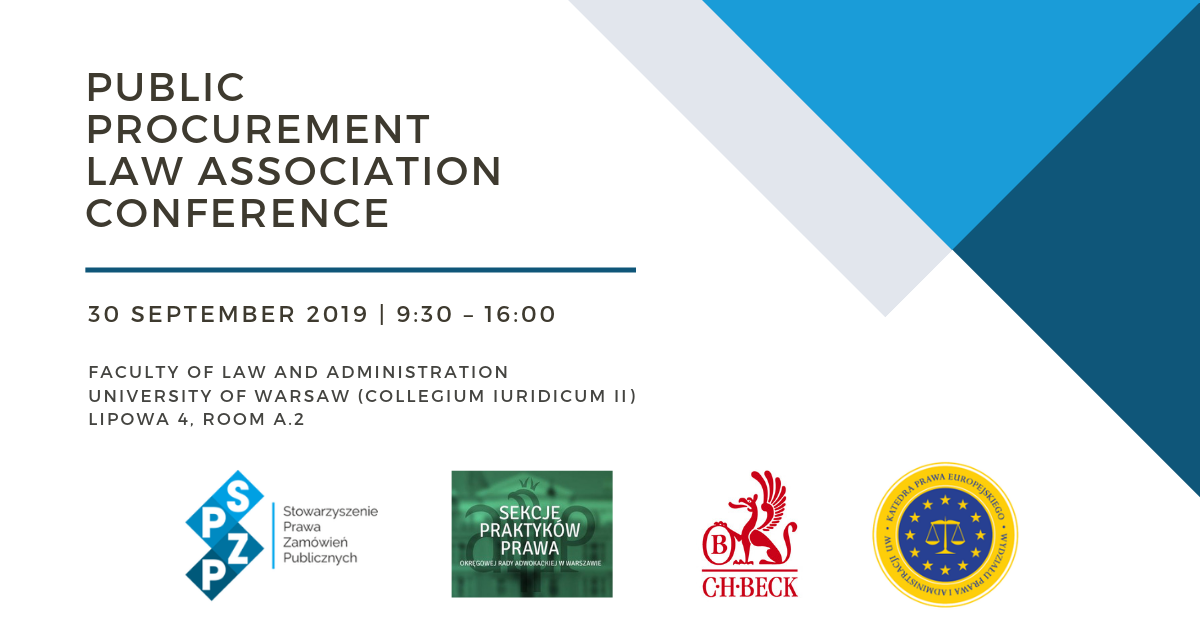The Public Procurement Law Association is pleased to announce that it will host a conference on "Grounds for exclusion – application practice in EU/EFTA countries and USA", on 30 September 2019, in Warsaw.
One of the key points of the conference will be the public unveiling of the Association’s report comparing the systems for the exclusion of contractors from public procurement procedures in Poland and in other European countries.
The conference programme also includes lectures and panels discussions on topics such as the various models of systems for the exclusion of contractors from public procurement procedures, the grounds for the exclusion of contractors and their practical application, as well as the effectiveness of such exclusion systems in the public procurement framework.
Attendees include experts on the theory and practice of public procurement law, including representatives of public authorities, as well as a number of international subject-matter specialists: Prof. Roberto Caranta (University of Turin), Prof. Christopher R. Yukins (George Washington University) and Collin David Swan (World Bank Office of Suspension and Debarment).
The conference will take place at the Faculty of Law and Administration of the University of Warsaw, Collegium Iuridicum II building (ul. Lipowa 4, room A.2), and will start at 9:30 am. The full programme can be downloaded here.
The conference will be held in Polish, with simultaneous translation to English.
If you would like to take part in the conference, please complete the online application form (https://forms.gle/AjPjZiNQ1ZPMtxyv5) by 25 September.
Attendance is free of charge, however, due to the limited number of seats only registered attendees will be admitted.





